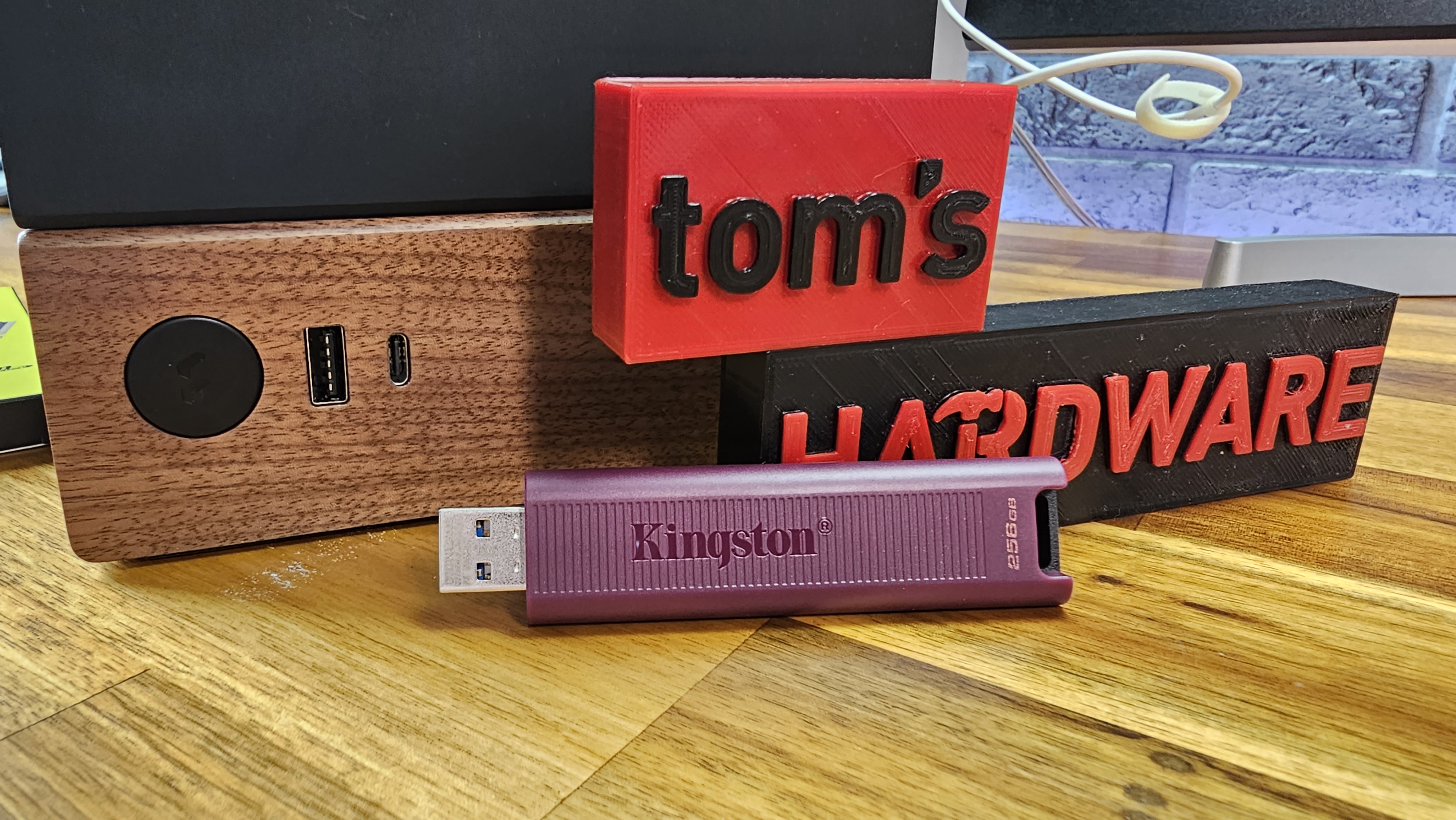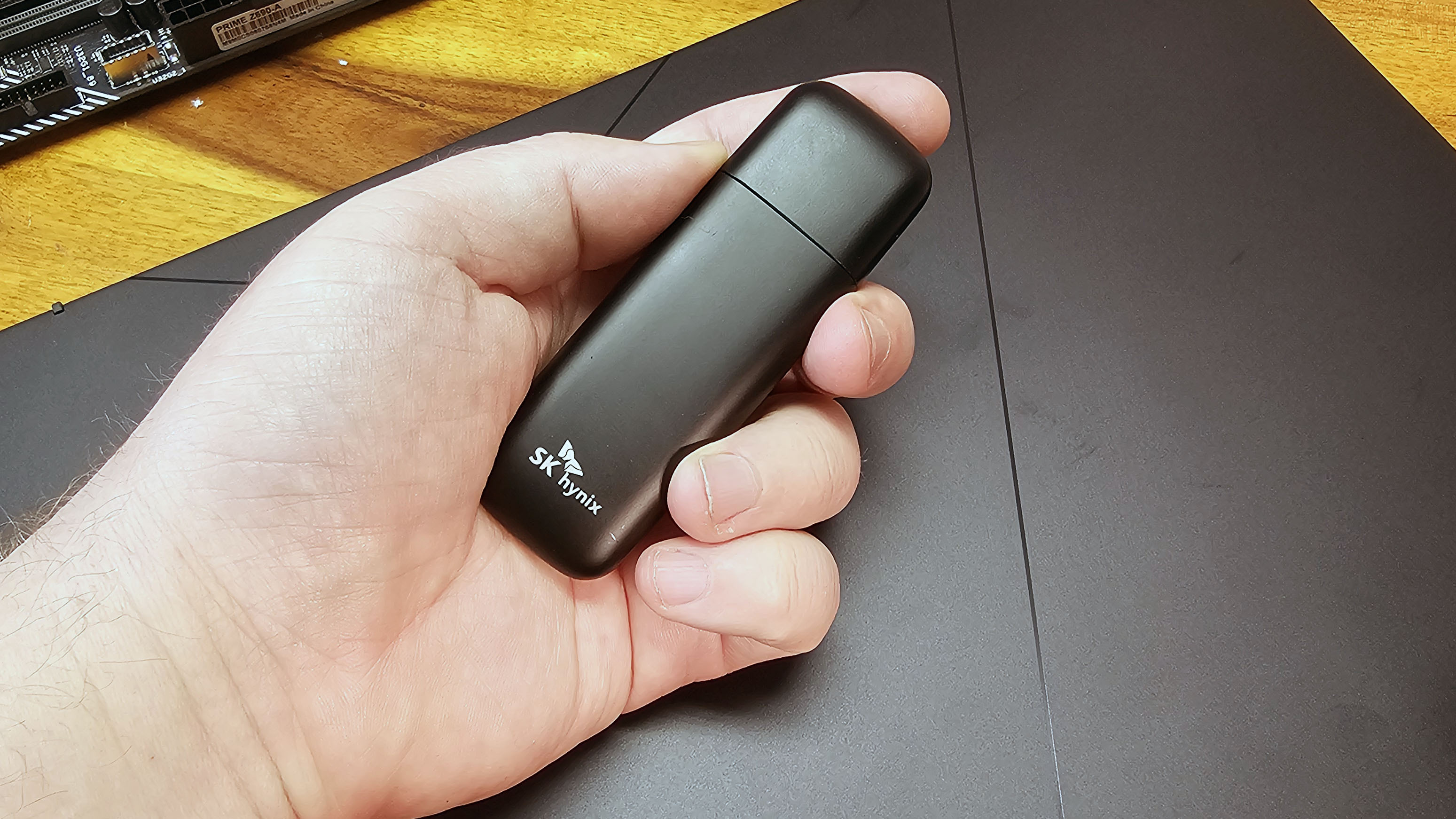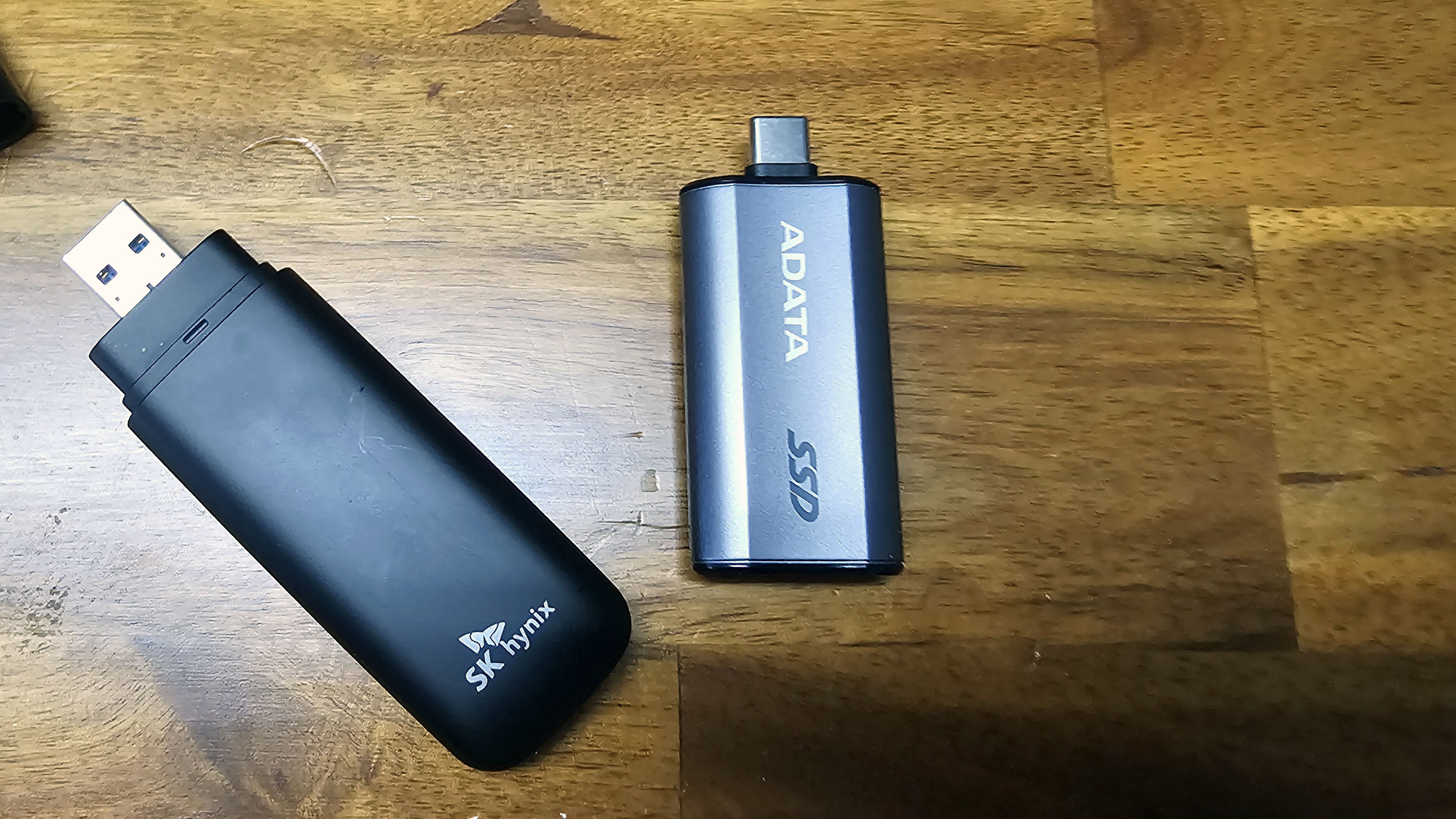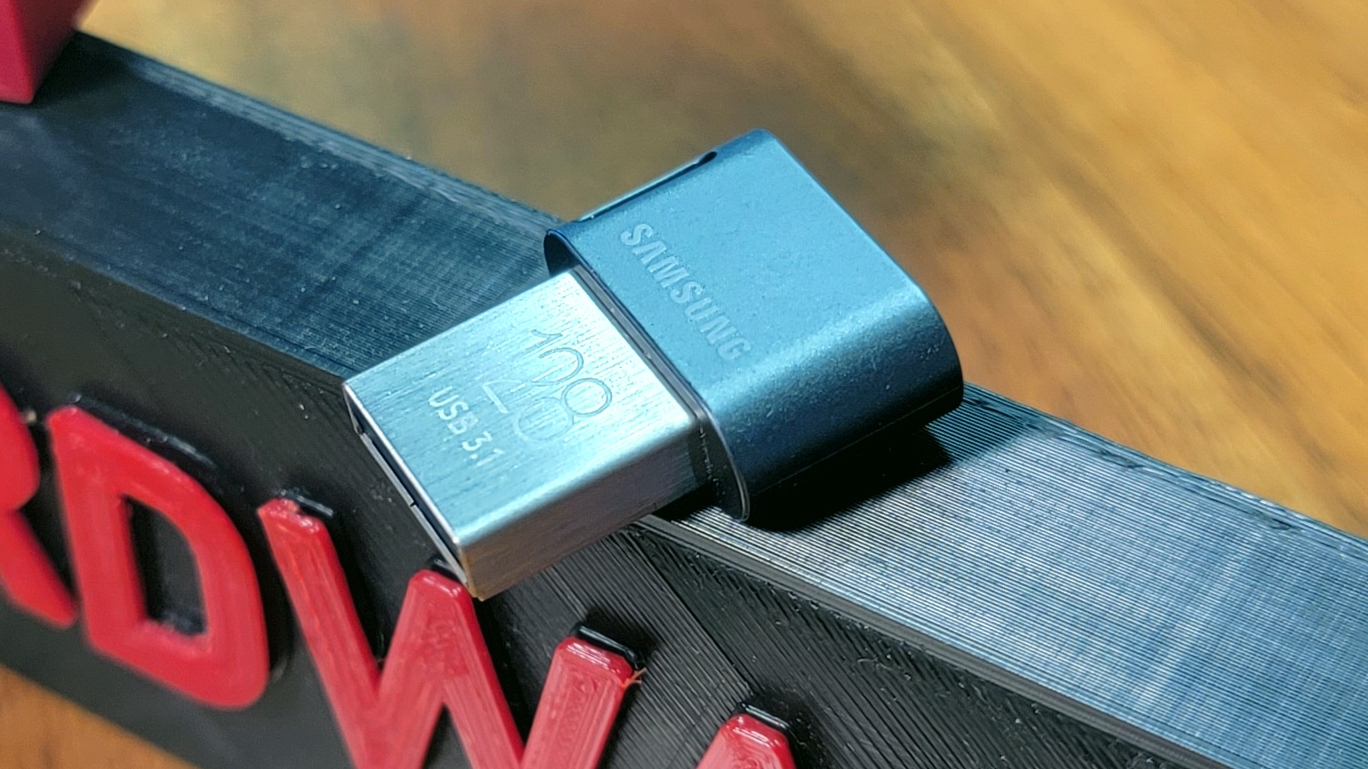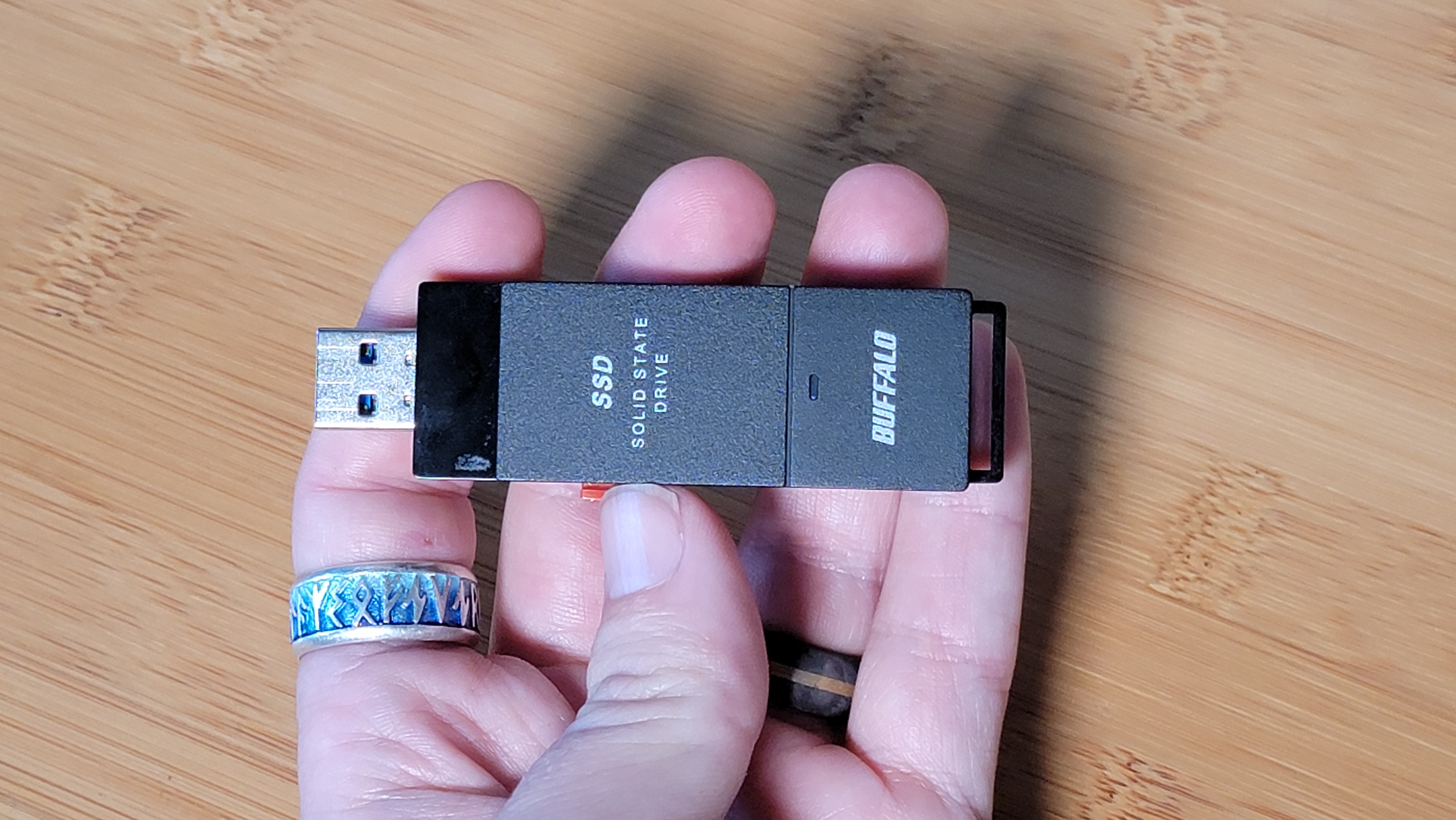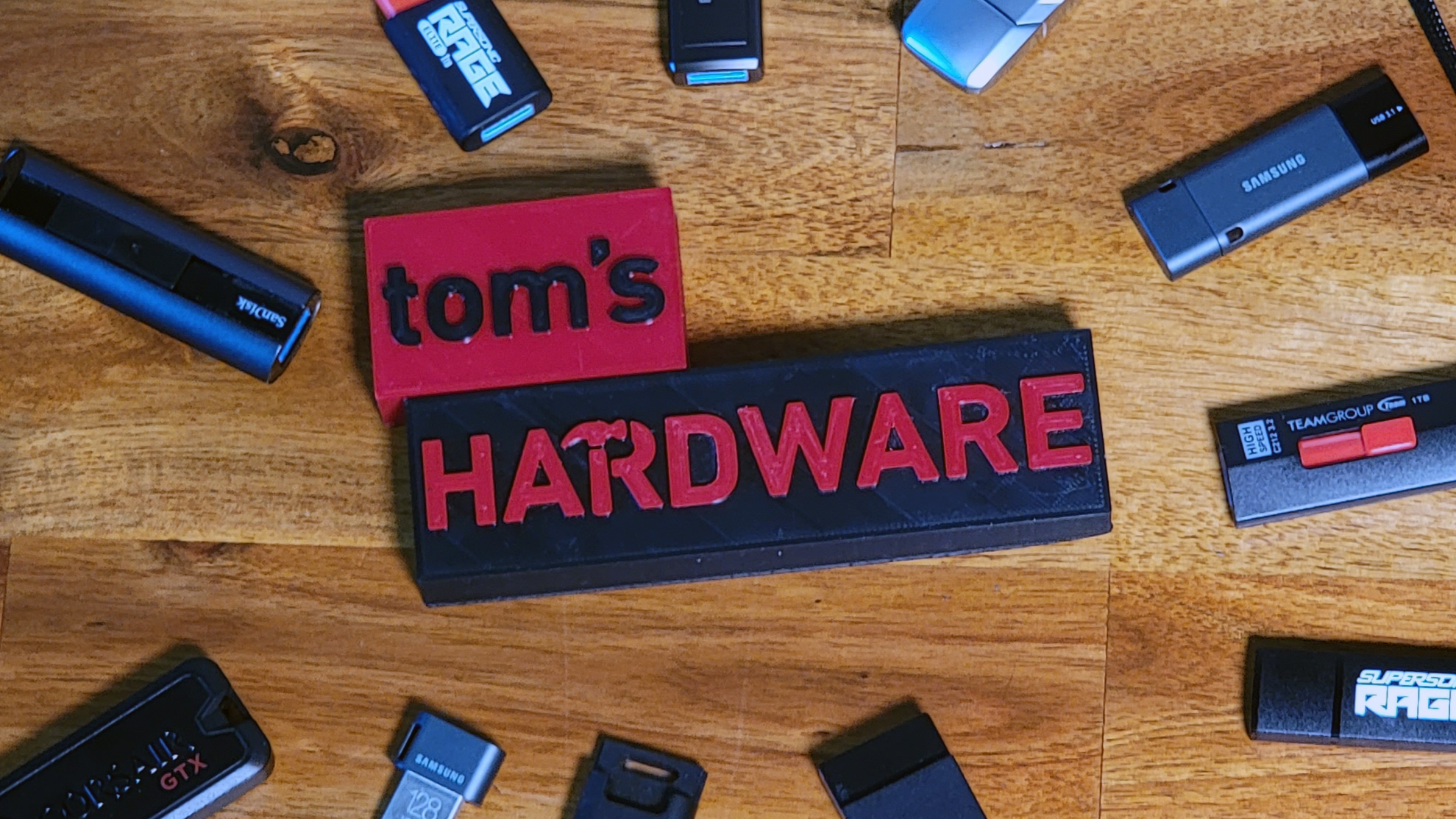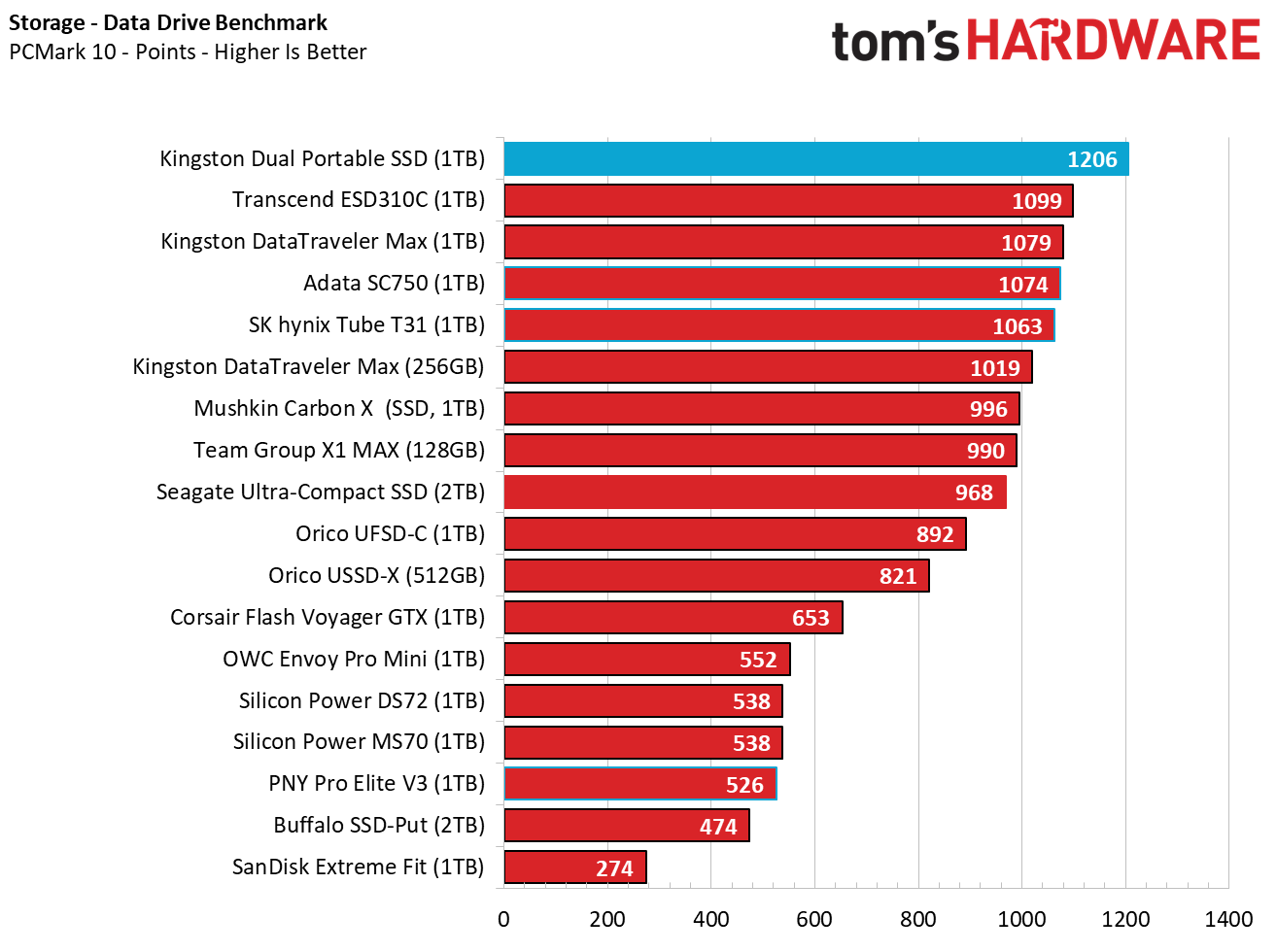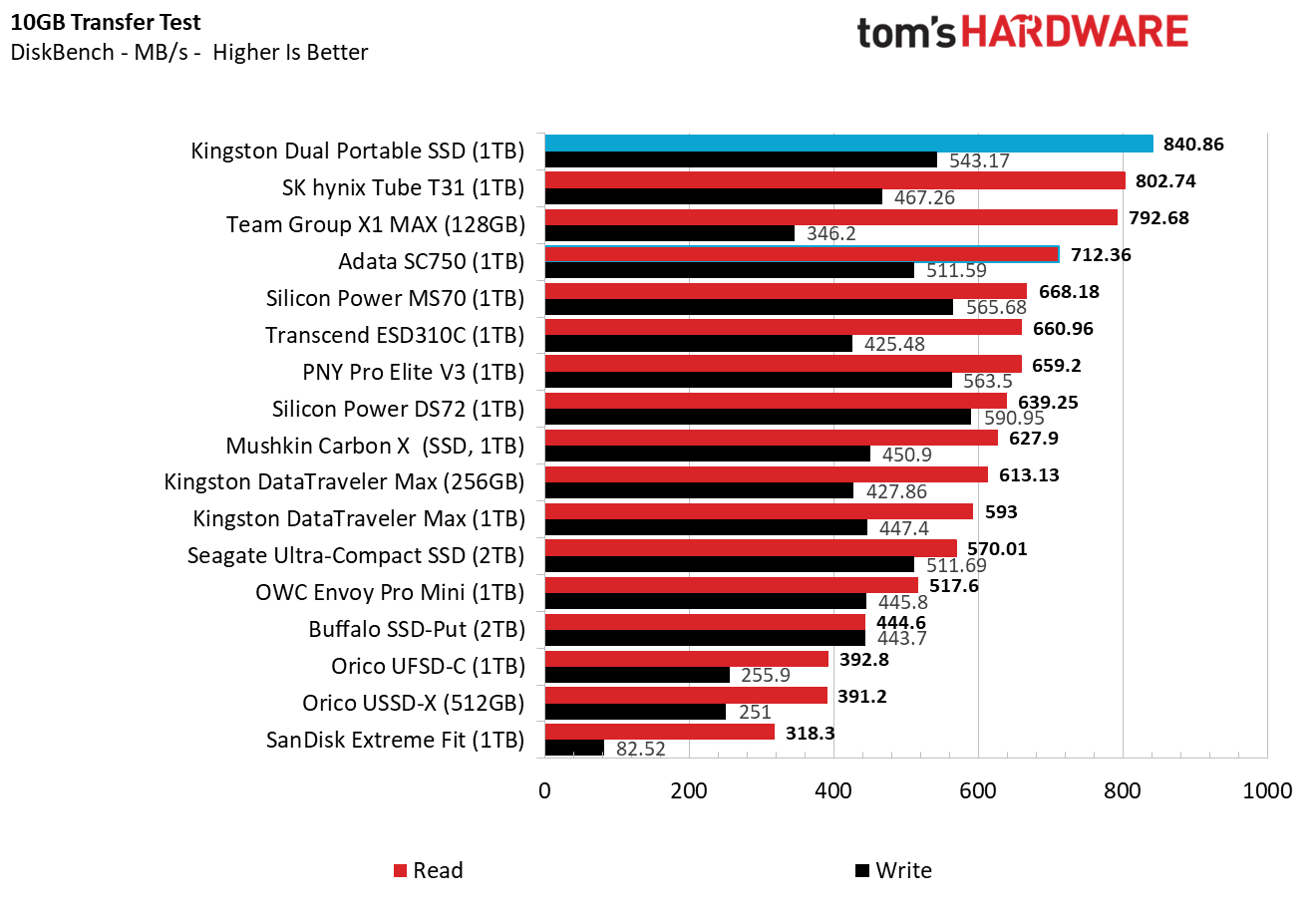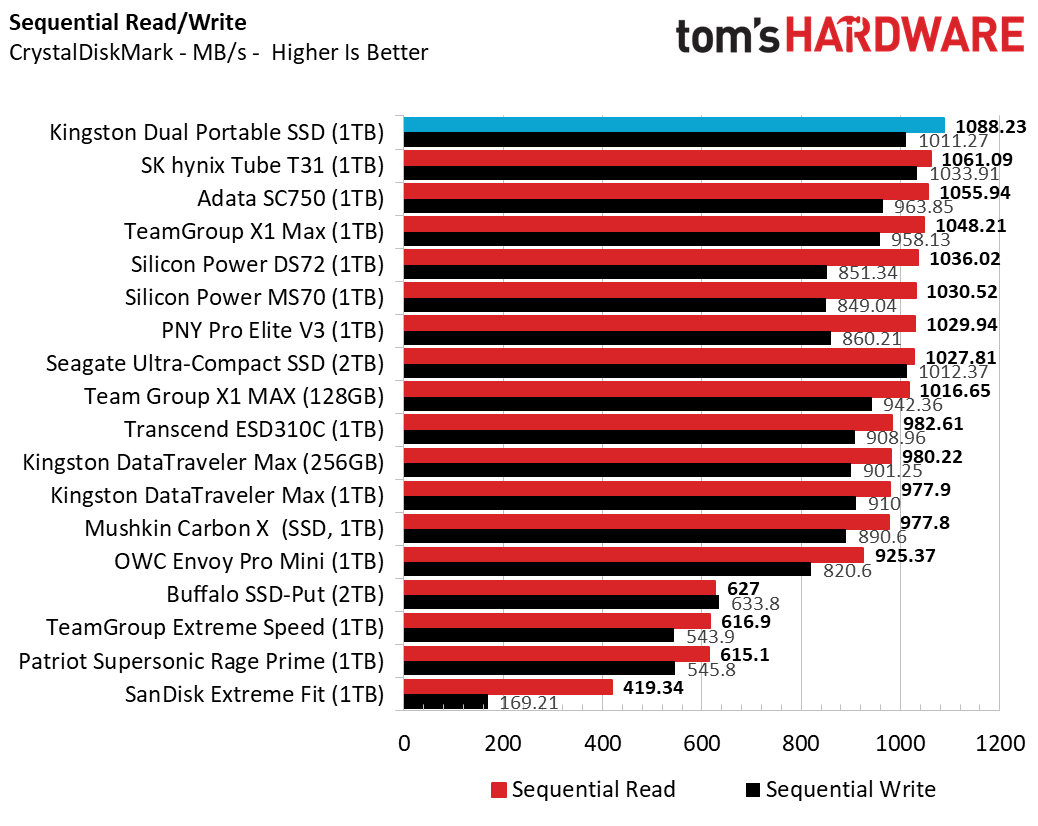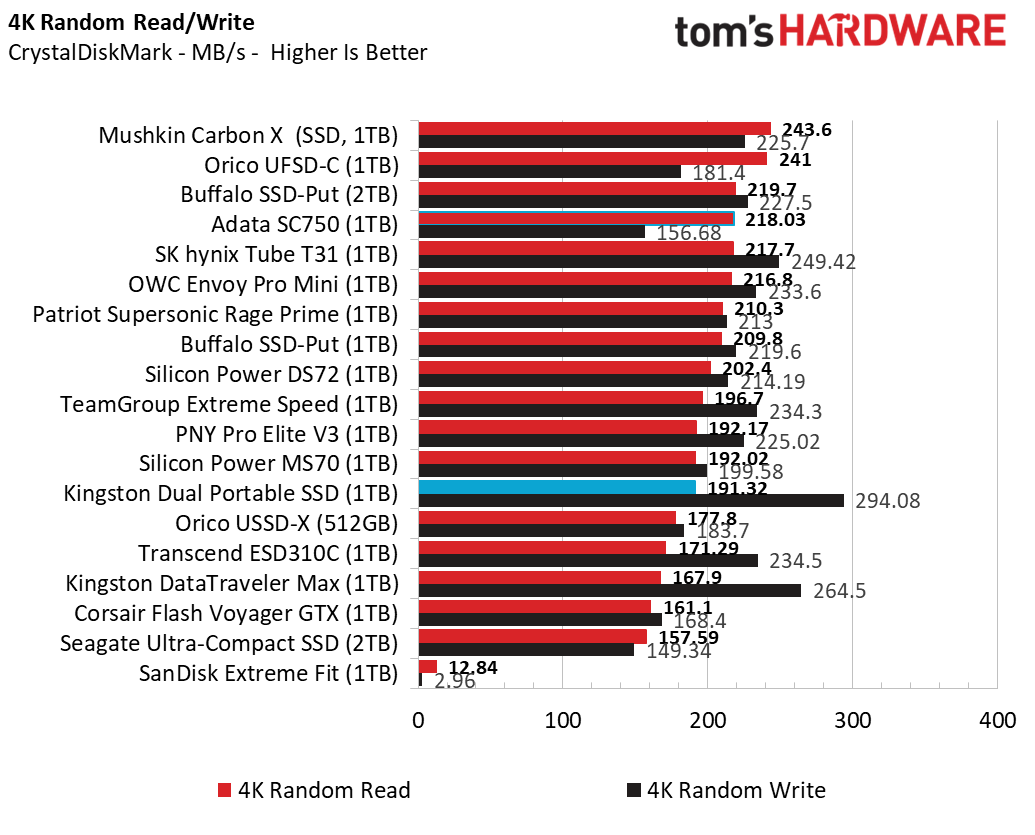Best Flash Drives 2025: Fast, Spacious, Pocketable USB Storage
The best flash drives today are much faster and more spacious than they used to be.
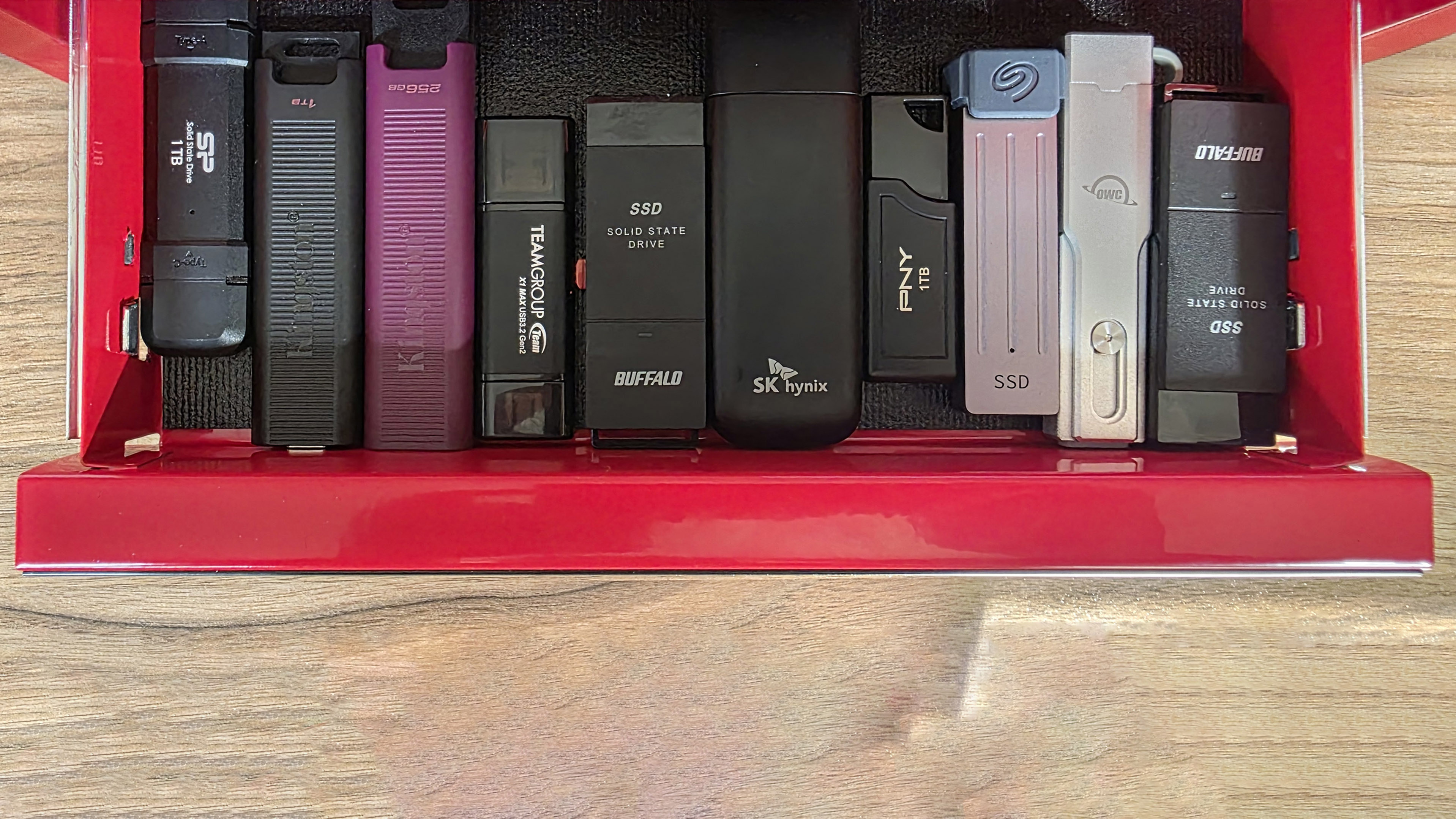
Despite the rise of cloud-based storage, USB flash drives have been the go-to option for those who need local, pocketable access to important files for decades. These tiny drives are still sold nearly everywhere (including at chain drug stores, often at highly inflated prices), despite companies like Microsoft, Google, and Dropbox making online storage a convenient and often free (depending on capacity) alternative.
But because flash drives often work just fine for a decade or more, you could be hanging onto one that’s pitifully slow by today’s standards, and too cramped to hold all the data you need here in 2025. Capacities of up to 2 TB are an option with several recent flash drive models (and 1 TB is common), and the performance of the fastest flash drives approaches that of some of the best external SSDs.
We’ve tested dozens of recent flash drives, from leading brands and lesser-known alternatives, and listed the best USB flash drives below, to help narrow down your pocket-friendly storage search. That said, if fast performance is key to your workflow and you can deal with a device that's just a little bit bigger and requires a cable, one of the best external SSDs is usually a better buy.
Also, if you have a spare M.2 SSD from upgrading a laptop or desktop, you can save some money building your own external SSD by mounting an old drive in an enclosure.
12/12/2025 Update: Added new charts with test results for both SanDisk's 1TB "plug and stay" Extreme Fit USB-C drive, as well as Kingston's USB-C/ USB-A Dual Portable SSD. The Kingston drive earns a top spot on read performance, but small file tests were mixed, and it's expensive compared to similar drives. The SanDisk Extreme Fit suffers from slow write speeds and a design that makes it easy to snag if left plugged into a laptop, where it can also block the use of adjacent ports unless you are plugging in a slim cable. Our picks below remain the best flash drives we've tested.
11/13/2025 Update: We are receiving fewer flash drives recently, in part because external SSDs like Crucial's X10 seem to be replacing them, thanks to the extra speed and capacity potential. But we have a couple of new drives coming in for testing soon. For now, our picks below remain the best flash drives we've tested.

My personal experience with flash drives started in 2001, when an 8MB model let me experience college blissfully free of floppy drives – and it was far more reliable than my old Zip disks. By 2009, I was testing and comparing flash drives for Computer Shopper magazine. Despite the rise of cloud services in the 2010s, I've continued to use flash drives external SSDs for moving benchmarks (and benchmark results) between test systems, and to back up over a decade of travel photos and work files.
Best Flash Drives You Can Buy Today
Why you can trust Tom's Hardware
Best Fast, Affordable Flash Drive
1. Kingston DataTraveler Max (256GB)
Our expert review:
Specifications
Reasons to buy
Reasons to avoid
Just like its roomier 1TB variant, the 256GB Kingston DataTraveler Max is a speed demon in the flash drive world. At $30-$35, Kingston’s 256GB drive is a great balance of speed, affordability, and capacity for those who don’t want to spend much more on a roomier, somewhat faster alternative.
Available with either a USB-C or USB-A connector, the 256GB DataTraveler Max performed nearly as well as its more spacious 1TB sibling in our PCMark, DiskBench, and CrystalDiskMark tests, making it one of the fastest flash drives we’ve tested. And it’s also fairly slim, making it easy to slip into a pocket.
Just note that, if you’re a desktop user and you opt for the model with the USB-C port, you will likely have problems plugging the drive into rear USB-C ports on the motherboard. Thanks to the two-piece plastic slide mechanism that protects the drive’s port when not in use, the USB-C connector is slightly too short to plug into most motherboards successfully. I tried this with three boards I have on hand and had the same issue with each. But, if your PC case has a front USB-C port or you’re using a laptop, this shouldn’t be an issue. I only had this problem with rear motherboard ports and this drive. Those looking for similar performance and price without the USB-C connector issues should instead consider the 256GB TeamGroup X1 Max. It has a USB-C port on one end (that we didn't have problems connecting to a motherboard) and a USB-A port on the other. Its performance is also excellent, but the caps on either in don't fit that snugly and will be easy to lose.
Fastest Flash Drive
Specifications
Reasons to buy
Reasons to avoid
The line between flash drives and external SSDs is increasingly indistinct, and SK hynix's Tube T31 blurs it even more, by putting an actual M.2 drive on a small PCB and shoving it into a somewhat bulky but surprisingly speedy flash drive form factor. Capacity is limited to just 512GB and 1TB models, but this is the fastest "SSD stick" we've tested yet, surpassing Transcend's ESD310C and Kingston's DataTraveler Max drives on most of our tests. Priced at $85-$90 when we wrote this, it's also slightly more affordable than those drives at the 1TB capacity.
If you're after a simple portable drive and don't need 20 Gbps speeds or a capacity higher than 1TB, it's a great choice. Its bulk might get in the way of nearby ports on a desktop or hub. But on a laptop, the USB-A port (if you still have one) is likely set apart from other USB ports. And on a desktop, you probably have several USB-A ports to choose from, unlike USB-C.
Read: SK hynix Tube T31 Review
Fastest USB-C Flash Drive
Specifications
Reasons to buy
Reasons to avoid
Much like the SK hynix Tube T31 drive (which is generally slightly faster in testing but also larger) Adata's SC750 blurs the line between flash drive and SSD, by essentially putting a retractable USB port on a small SSD inside a plastic housing, making for a compact flash drive that beats nearly every competing drive that doesn't require an external cable.
In our testing, the 10Gbps-rated Adata SC750 beat the Tube T31 in PCMark 10, came in second in reads in our 10GB DiskBench read test, and was faster than the hynix drive in writes. Adata's drive didn't look quite as good in our CrystalDiskMark results, but overall it's generally the second-fastest drive we've tested in this category. And unlike the Tube T31, it uses USB-C rather than the older USB-A port. So if you want to plug your drive into a phone or you have a laptop with only USB-C ports, it should be at the top of your list for convenient and speedy external storage.
In terms of price, the ADATA SC750 may cost slihgtly more or slightly less than SK hynix's drive, depending on whether the latter is on sale. But given the similar performance and what generally seems to be about a $10 price difference between the two drives, if you're considering both drives, you should probably make your choice based on which port (USB-C for Adata, USB-C for SK hynix) is the most convenient for your use cases.
Read: Adata SC750 review
Best Cheap and Tiny Flash Drive
4. Samsung Fit Plus (128GB)
Our expert review:
Specifications
Reasons to buy
Reasons to avoid
If you're after a drive that's small enough to leave plugged into your laptop most of the time, or you just want something you can clip to your keychain and forget about until you need it, Samsung's FIT Plus stands out. The 128GB model we tested sells for $18, and when we wrote this the top-capacity 256GB model was selling for just $25 direct from Samsung. At less than an inch long, including its USB-A connector, it will stick out of your port less than an inch when plugged in. And it has a hole for a lanyard, it feels solid – in fact, this sub-$20 drive feels better than the most expensive drives on our list. And Samsung says it's rated to survive in up to 1 meter of water for 72 hours. In case it doesn't, the company covers the drive with a generous five-year warranty.
That being said, our testing shows this tiny drive is in a much lower performance class than the bigger, pricier, roomier models. On our real-world DiskBench 10GB test, the Samsung Fit Plus read our files at a decent 319.7 MB/s, but could only write at 58.4 MB/s. That's just over half the read speed and less than 15% of the write speed of Kingston's 1TB DataTraveler Max. That said, the Samsung drive's performance was still significantly better than most of the drives we tested with capacities less than 1TB. SanDisk's Extreme Pro 128GB wrote our test files about twice as fast, but it costs nearly 2.5 times as much and is more than six times longer.
Best High Capacity Flash Drive
5. Buffalo SSD-PUT (2TB)
Our expert review:
Specifications
Reasons to buy
Reasons to avoid
There are loads of insanely cheap no-name 2TB flash drives available on Amazon and sites like Aliexpress if you like throwing your money at scammy garbage tech – but the 2TB Buffalo SSD-PUT is real and (at $160 when we wrote this) a surprisingly good deal. It's cheaper than most larger 2TB external SSDs (although some of those will definitely be faster), and significantly smaller (although still bulky for a flash drive). Overall, this drive did slightly better on our benchmarks than its 1TB sibling, meaning it doesn't beat or often quite match the Kingston DataTraveler Max. But for the price -- and especially considering it's one of a very few 2TB drives available from a known brand, this is a very impressive performer.
On the minus side, the drive has the same creaky, cheap-feeling plastic shell as the 1TB model, and it's nearly an inch wide, making it a tight fit on some laptops where the ports are placed close together. But you get a roomy 2TB of pocket-friendly storage at fast speeds (for a flash drive), and a bundled USB-C adapter should your device not have a USB-A port handy. If Buffalo would just release this drive in solid-feeling metal housing (or even a solid-feeling plastic one), this would arguably be the perfect flash drive for those who need lots of storage in their pocket.
Flash Drive Shopping Considerations
🤔 What type of ports are you plugging your flash drive into?
One thing to keep in mind when shopping is what type of ports you'll be plugging your flash drive into. Some drives are offered with either a USB-A connector or USB-C, and some come with adapters to convert from USB-A to USB-C or vice versa. A few drives have both connectors on the same drive, which is certainly more convenient than having to keep track of an adapter and have it with you every time you need it. All of the faster flash drives we've tested have a single Type-A or Type-C connector. Also, note that drives that promise speeds of 500 MB/s or more use USB 3.x Gen 2 (10 Gbps) ports. That means if you're plugging those drives into a USB 3.0/USB 3.1 Gen1 (5Gbps) port (those are still far more common than the faster Gen 2 ports), performance won't be as fast as it could be.
Still, the performance differences between the lower-cost, lower-performing drives in our testing and the higher-performing 1 or 2TB drives that top our test results are at times nearly a factor of 10, especially when it comes to write speeds. So even when you plug one of the fastest drives into a slower 5Gbps port, you should get much better performance than you would if using an older or cheap sub-$20 flash drive.
🤔 "True" Flash Drive, or SSD Stick?
Companies like SK hynix and Adata (and likely others soon) have blurred the line between the traditional flash drive and an external SSD. The Tube T31 and Adata SC750 (both picks on our list above), house actual solid-state drives inside, just like an internal NVMe SSD, with a USB port stuck on one end and a plastic shell.
These kinds of drives tend to be faster than other flash drives, which is nice. But they also tend to be much wider than more traditional flash drives, like Kingston's DataTraveler Max. That means these "stick SSDs" as they are sometimes called, often block adjacent ports. And if you're using a laptop that perhaps only has two ports, that can be a significant issue. Of course, some "true" flash drives tend to be wide as well, like Buffalo's SSD-PUT.
So keep any necessary port clearance in mind when you're shopping for a new drive. You could have the fastest drive available, but if it forces you to unplug your power cable or mouse every time you want to use it, you may want to consider something smaller and a little slower.
How We Test Flash Drives
Our current testbed consists of an ASRock Z790 Taichi Lite motherboard and a Core i5-12600K CPU. This system gives us native Thunderbolt 4 ports and a USB 3.2 Gen 2 2x2 port via the front header (connected through Corsair's 5000D Airflow case).
All of our benchmark testing was done with drives plugged into the system's rear USB 3.1 Gen 2/ USB 3.2 (10 Gbps) ports. The Aorus board we used has one Type-C and one Type-A port rated for these speeds, so we were able to accommodate drives with both types of connectors.
To get a sense of how these flash drives compare to a larger (though still usually pocketable) external SSD, we also ran our flash drive tests on the Mushkin CarbonX, a 1TB External SSD that's rated to similar speeds as the fastest flash drives, or "Up to 1,000 MBps." This drive is no longer widely available, but you can expect similar performance from some of the more affordable options on our Best External SSDs list.
Given external SSDs' general ability to perform better on longer-duration workloads (and particularly small file writes, which we'll see shortly in testing), an external SSD is often a better option if you are going to frequently be moving large amounts of files on and off your drive, and especially if you plan to run programs from your portable storage device. The larger surface area and improved controllers and components of external SSDs tend to make them better at those kinds of tasks, though there are of course noticeable performance differences in that product category as well.
Trace Testing - PCMark 10 Storage Benchmark
PCMark 10 is a trace-based benchmark that uses a wide-ranging set of real-world traces from popular applications and everyday tasks to measure the performance of storage devices.
Transfer Rates – DiskBench
We use the DiskBench storage benchmarking tool to test real-world file transfer performance with a custom 10GB dataset. We copy 1,204 files (images, videos, and software ISO files) to a folder on the test drive (write). Then, after leaving the system idle for five minutes, we run the same test in reverse, moving the test folder to a different location on our PCIe 4.0 testing drive.
Synthetic Testing CrystalDiskMark
CrystalDiskMark (CDM) is a free and easy-to-run storage benchmarking tool that SSD companies commonly use to assign product performance specifications. It gives us insight into how each device handles different file sizes. We run this test at its default settings.
A Note on Temperatures
If you've used a flash drive in the past and written lots of data on it, there's a good chance you've grabbed it to yank it out when you're done and winced at the hot – or at the very least surprisingly warm – exterior. We've certainly dealt with uncomfortably toasty drives before, but perhaps that's becoming an issue of the past.
We initially checked 10 of the drives we tested, and none felt hot to the touch after writing large amounts of data. We used an IR thermometer to check the temperature of several during a long 100GB write test. After several minutes of sustained writing, the Transcend and PNY drives got the warmest, but were still under 94 degrees Fahrenheit. The solid-feeling metal-clad Orico drive got up to just 83.4 degrees, and the similarly solid OWC Envoy Pro Mini remained the coolest, at just 78.5 degrees Fahrenheit. The tiny Samsung Fit Plus, which barely has any surface area compared to the other drives, topped out at 82.1 degrees in our testing. Doubtlessly, the Samsung drive is helped here by the fact that it writes much more slowly than many of the larger drives.
For future drives, we will only measure surface temperatures when a drive feels unusually warm during testing.
Other Flash Drives We Tested
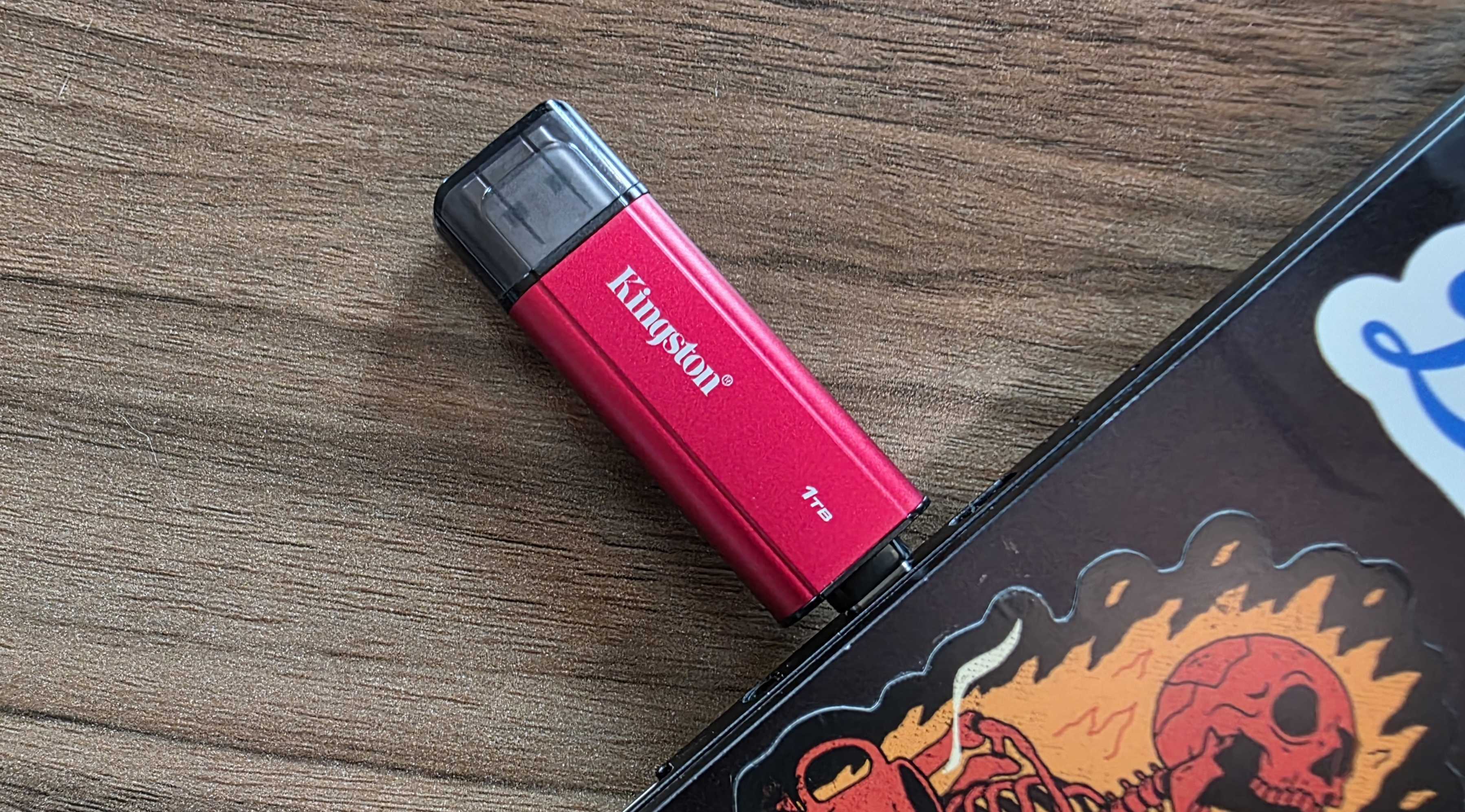
Kingston Dual Portable SSD (1TB): This dual-port 10 Gbps drive from Kingston delivers convenience, versatility, and chart-topping synthetic and sequential read performance, outpacing our favorite USB-A-only SK hynix Tube T31 in some of our tests. But it isn't quite the fastest when it comes to writes, and its small file performance was mixed, marking it as not the best choice for running programs or an operating system directly off the drive.
Still, the Kingston Dual drive makes a strong case as a fast and compact file mover, and is available in capacities up to 2TB, despite its slim metal shell. It's a worthy alternative to the Tube T31 if you're primarily using the drive to back up and carry files (and you need USB-C connectivity). But it's also currently expensive, selling for north of $150 for the 1TB model we tested, while the SK hynix drive was available at Micro Center for about $50 less.
The Tube T31 is increasingly scarce, however, while Kingston's drive just recently launched. If the Dual Portable SSD goes on sale, it's a great option if, again, you don't care much about small file performance.
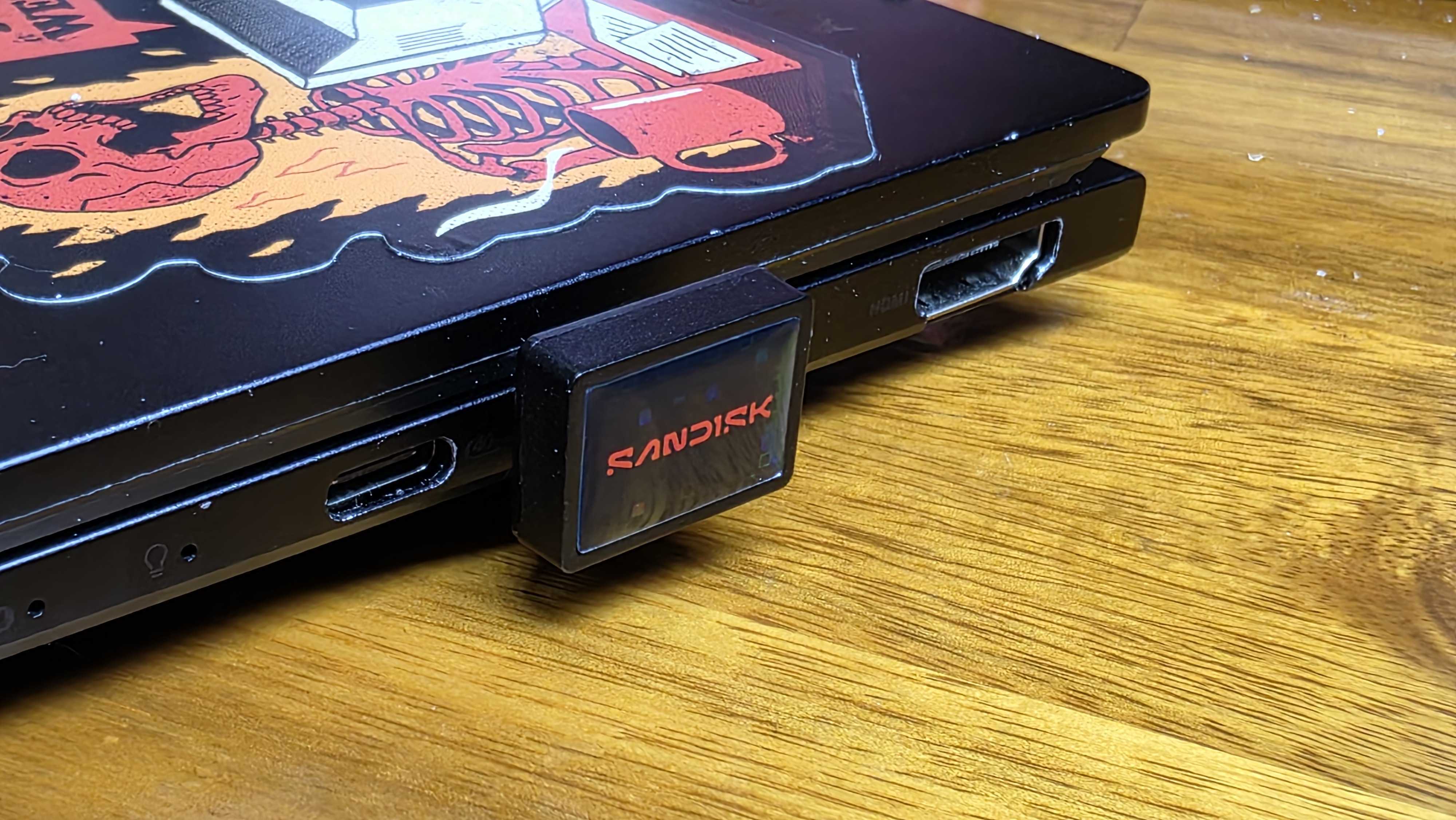
SanDisk Extreme Fit (1TB):This tiny USB-C drive is designed to be a semi-permanent attachment to the side of your laptop (or the back of your desktop), as an easy way to add storage space. Available in capacities ranging from 128GB to 1TB (the capacity we tested), it's not aiming to be a speed demon, with advertised read speeds of "up to 400 MB/s." In our testing, it achieves that in our sequential CrystalDiskMark test (419.34 MB/s, to be exact), while delivering a decent real-world read speed of 318.3 MB/s in our 10GB file transfer test.
But write speeds are much lower (82.52 MB/s in the same 10GB test), and the small SanDisk drive's score of 274 on our PCMark 10 Data Drive test was less than a quarter that of the chart-topping Kingston drive. For its general purpose of semi-permanent storage, it's fast enough for general use without feeling sluggish (particularly when retrieving files). But as small as it is, it doesn't sit flush with your USB port, making snags or bumps an obvious worry. And it's wide enough that it comes very close to blocking the adjacent USB-C port on my Asus laptop. So unless you're dealing with sensitive files or have spotty Wi-Fi, you may want to opt for cloud storage instead.
Seagate Ultra-Compact SSD (2TB): Despite being one of the best looking and premium-feeling of the recent spate of so-called "stick SSDs," Seagate's flash drive-style drive just didn't stand out in benchmark testing, often lagging behind the SK hynix Tube T31 and TeamGroup's X1 Max, both of which cost less. A price drop would make this drive more appealing, but it just wasn't as speedy in our tests as other high-end stick storage options.
PNY Pro Elite V3 (1TB): This third iteration of PNY's high-end flash drive has a solid metal sliding shell that protects its USB-A port when not in use. Its 1,000 MB/s read and 800 MB/s write speed rating, in particular, is a bit more modest than the claims of its high-end competition. And while it exceeded those speeds in our sequential test, it disappointed elsewhere, like in PCMark, where it scored only half of some of the best alternatives we've tested.
It also couldn't crack the top five in our real-world read test (though its write speed there was nearly the best). So while the Pro Elite V3 is head and shoulders above the V1 and V2 that came before it, it doesn't stand out in terms of overall performance.
And at $105 for the 1TB model we tested, it's also one of the priciest 1TB drives we've tested. When we wrote this, the faster SK hynix Tube T31 was $86 at the same capacity, making it easily the better drive.
Silicon Power MS70 (1TB) and DS72 (1TB): These two drives from Silicon Power perform roughly the same and have similarly solid-feeling shells and flip-up caps. The DS72 has a USB-C connector on one and and USB-A on the other, while the MS70 makes do with just USB-A.
The Silicon Power drives also perform fairly well overall, but were inconsistent on our tests. In Crystal Diskmark's sequential tests, they were the best flash drives we've tested yet, and they were also among the best on our 10GB DiskBench test. But on the PCMark 10 Data Drive benchmark, they consistently delivered scores that were roughly half of what the Transcend and Kingston drives we tested and they weren't particularly impressive in our 4K test, either.
Pricing for the 1TB models that we tested was also in an awkward middle area, between our favorite mainstream drive from Buffalo and the better-performing options from Transcend and Kingston. Still, if the price drops by $10-$20, these would be good options, particularly if you mostly want a drive to move files from one place to another rather than to run programs from, directly. Their physical design and build quality feels better than some of the more expensive options out there.
We tested more than a dozen drives for this list in the quest to find the best flash drives, and will be adding more in the near future. Many of the lower-capacity, lower-priced drives performed poorly overall, proving the adage "you get what you pay for." However, some expensive 1TB drives suffered from disappointing performance in some benchmarks, proving you don't always get a great drive even if you're willing to spend close to $100. Below are some of the drives that stood out but didn't make the list.
Orico USSD-X (512GB): Orico's latest flash drive is wrapped completely in metal, and feels surprisingly solid in your hand. And supposedly it will be offered in several colors. Its performance in our testing hovered between middle of the pack and near the top, excelling in our PCMark and Diskbench tests, especially. That said, its performance didn't stand above the rest in any single test, and at the time of testing, we couldn't find it for sale in the US. Hopefully, the company improves its supply issues, because this USB-A drive feels better to hold and use than arguably any other flash drive we've tested. And its performance is quite solid. We just need to know how much it will cost.
OWC Envoy Pro Mini (1TB): This drive was the second-fastest overall and sports a solid metal shell. But its design is overly complicated, as is its setup process (which forces you to agree to a EULA which, when we wrote this, was still 404ing). Really though, the primary problem with OWC's drive is price. At $149 for the most spacious 1TB model, it's nearly as expensive as the 2TB Buffalo drive. And often the Buffalo drive goes on sale for less.
Patriot Supersonic Rage Prime (1TB): With a name this obnoxiously aggressive (and $90 price to match), we were expecting impressive things from Patriot's top-end flash drive. And it did quite well in some tests, but struggled on our 10GB file transfer test, managing to write at just 91.7 MB/s–behind all but the lower-capacity, much lower-priced drives on this list.
PNY Pro Elite (1TB): We like the solid metal shell of this PNY drive, but its $130 asking price is higher than any other 1TB drive we've tested. And it struggled on our 10GB write test, managing just 96.9 MB/s, which was slower than even Samsung's 256GB Duo Plus drive. There isn't much that's pro or elite about that.
Orico UFSD-C (1TB): This metal-clad USB-C drive looks and feels great and performed quite well overall, though its benchmark results didn't stand out in any real way. Its main issue is availability. The company sent us the 1TB model we asked for, but it doesn't seem to be for sale anywhere in the US. You can order it on Aliexpress, but even there it's only available at up to 512GB, and its $82 current price is close to what we'd expect the 1TB model to sell for.
Samsung USB-Type-C (128GB): One of Samsung's newer drives, this model sports solely a USB-C connector and isn't much bigger than the USB-A Fit Plus drive. But it's slightly more expensive than the Fit drive and had a tendency to land near the bottom of our tested Samsung drives in terms of performance. If you need USB-C and don't need a lot of speed (and particularly write speed) and capacity (it tops out at 256GB), this isn't a bad drive. It just doesn't stand out in any substantive way. And we wish its write speed were at least twice as fast as the 59-67 MB/s we saw in our sequential tests. Read speeds were, at least, much faster at more than 300 MB/s.
SanDisk Extreme Pro (128GB): While SanDisk's high-end drive performed well compared to other 128GB models, its $43 price at that capacity is about 2.5x that of Samsung's Fit Plus. And while it is available in up to 1TB capacities, the most spacious model sells for between $130 and $200, making it much more expensive than competing drives.
SanDisk Ultra (256GB): SanDisk's plastic-clad Ultra drive is exactly the kind of thing you'll see drastically overpriced at your local pharmacy or big-box store. Online, it seems fairly reasonable at about $20. But Samsung's Fit Plus is much smaller, performed better in most of our tests, and can be found for $5-10 more in the 256GB capacity.
MORE: Best SSDs
MORE: Best External SSDs and Hard Drives
MORE: How We Test HDDs And SSDs
MORE: All SSD Content
Get Tom's Hardware's best news and in-depth reviews, straight to your inbox.
After a rough start with the Mattel Aquarius as a child, Matt built his first PC in the late 1990s and ventured into mild PC modding in the early 2000s. He’s spent the last 15 years covering emerging technology for Smithsonian, Popular Science, and Consumer Reports, while testing components and PCs for Computer Shopper, PCMag and Digital Trends.
-
Co BIY I'm a big fan of the Samsung BAR drives. They are my Everyday Day Cary (EDC). Seem to last forever, look great, feel solid and make good gifts for people who are using a cashier line drive at work.Reply
I have a Samsung FIT and it's actually too small for everyday use in a lot of cases. -
Evertprakkie Buffalo Externe SSD 1TB - Tot 600MB/s - USB-C - USB-A - USB 3.2 Gen 2 (compatibel met PS4/PS5/Windows/Mac) - Externe Solid State Drive Stick - SSD-PUT1.0U3BReply
Merk: BUFFALO
4,4 van 5 sterren 293 beoordelingen
Selling for around $70 for the 1TB model when we wrote this in the article
In the article it says seventy dollars but on Amazon NL. it costs two hundred euros 1 TB and 500GB 210 euros. I find this very strange.
€200,39€200,39
Capaciteit: 1 TB
1 TB
€ 200,39
500 GB
€ 210,86Stijlnaam: Buffalo SSD-PUT draagbare stick SSD-schijf
Digitale opslagcapaciteit1 TBInterface van harde schijfUSB 3.2AansluitingstechnologieUSB, USB-A 3.2MerkBUFFALO -
USAFRet Reply
Yes, legit.WrongRookie said:Huh? We actually have legit 1-2TB pen drives?!? I thought those are scams..
Not inexpensive, though.
If you see one for $10 or so....those ARE scams. -
Gillygong Reply
Just stay away from unknown brand names and buy from reputable sources and you won’t get scammed in 👍 drive storage size. Notice, too, like the other poster said, the drives aren’t inexpensive.USAFRet said:Yes, legit.
Not inexpensive, though.
If you see one for $10 or so....those ARE scams. -
Colif Anything bigger than 2tb probably doesn't exist yetReply
https://forums.tomshardware.com/threads/buyer-beware-16tb-or-larger-external-portable-ssd-usb-drives-are-fake.3773032/
seems I need to update minimum size of USB in that now. -
Colif Reply
That isn't enough, need to also make sure it actually exists as there are plenty of wrongly branded fakes out there... can find Sandisk drives on Ali Express that don't really exist. You get a drive but whats inside is a different story.Gillygong said:Just stay away from unknown brand names -
Gillygong Reply
Who buys their drives from Ali Express? I said reputable sources.Colif said:That isn't enough, need to also make sure it actually exists as there are plenty of wrongly branded fakes out there... can find Sandisk drives on Ali Express that don't really exist. You get a drive but whats inside is a different story.
Buying stainless steel key rings from Ali? Yes.
Buying a computer or data storage device from Ali? Crazy talk. -
USAFRet Reply
Unfortunately, a LOT of people think that AliE, and ebay, is a valid 'store' to buy things from.Gillygong said:Who buys their drives from Ali Express? I said reputable sources.
Buying stainless steel key rings from Ali? Yes.
Buying a computer or data storage device from Ali? Crazy talk.
For some, that is their default.
